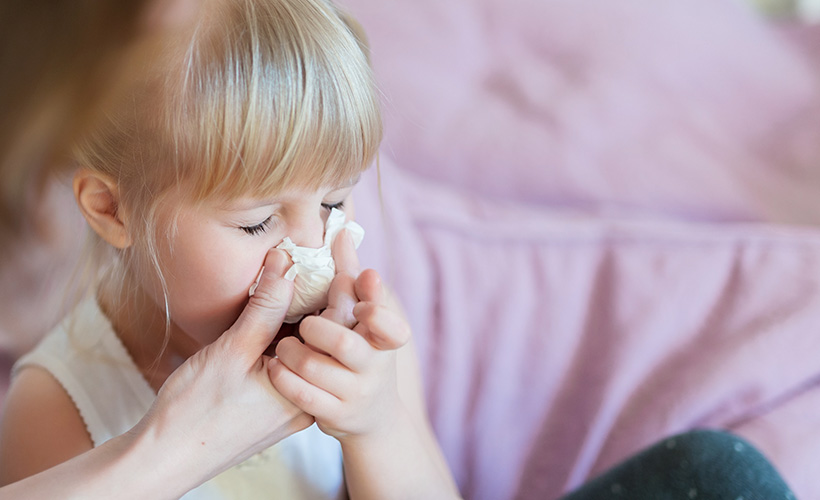I never thought I’d be the kind of person who gets excited about how people breathe (I mean, it doesn’t get much more natural and instinctual than that, right?), but here we are. Chalk it up to being both a naturopath and a mum. I’ve seen firsthand how something as simple as breathing through your nose, instead of your mouth, can make a real difference to sleep, energy, focus, moods… and even a healthier marriage!
Most people assume they breathe through their nose. I did too. But when I started paying attention…I realised my mouth was often sneaking in to do the work. And I wasn’t alone. I started noticing it in my kids and in clients too. Turns out, this tiny habit has a bigger impact than you might think.
Figuring Out If You Are A Mouth Breather…
Do you often wake up with a dry mouth or sore throat? Do you snore? Find yourself breathing through your mouth while driving, exercising or sitting at your desk? What about your kids… do they sleep with their mouths open, snore a little, dribble a bunch on the pillow, or always seem to have a blocked nose? If any of these sound familiar, don’t worry…you’re in the company of many unaware that they could switch it up from mouth to nose in the name of health! Thankfully, nasal breathing is something you can retrain yourself (and others in your family) to do gently and naturally.
Why Nasal-Breathing Is Better…
Our noses aren’t just there to smell the roses… they’re our body’s primary breathing passage for a reason. When we breathe through the nose, the air is filtered, warmed, and humidified before it reaches our lungs. This helps trap dust, allergens and pathogens to help protect the delicate tissues in our respiratory system. Nasal breathing encourages the production of nitric oxide, a naturally occurring gas that helps improve circulation, deliver oxygen more efficiently, and support the immune system. It also helps us breathe more slowly and deeply, which keeps us calmer and more energised.
By contrast, mouth breathing bypasses all of these built-in benefits. The air comes in cold and unfiltered, which can irritate the airways and make us more vulnerable to dryness, inflammation and even infections. Over time, it can also lead to shallower, more rapid breathing that puts strain on the body and can keep us stuck in a low-grade stress response.
And For The Kids…
Mouth breathing in kids is more common than you might think. It can impact sleep quality, behaviour, and even how their face and jaw develop. If your child snores, frequently breathes through their mouth during the day or night, or always seems congested, it might be worth a chat with your GP, naturopath or a practitioner who works with myofunctional therapy.
For children, nasal breathing does more than support deep sleep. It also plays a vital role in proper jaw and facial development. When kids breathe through their nose, it encourages the tongue to rest in the correct position (up against the roof of the mouth), which helps guide the growth of the upper jaw and supports a well-aligned bite and airway. Mouth breathing, on the other hand, can lead to narrower arches, crowded teeth, and even changes in facial structure over time. It’s one of those subtle things that can have a big impact as little faces grow.
Improvements You May See If You Switch To Nasal Breathing…
One of the biggest improvements people notice when they retrain themselves to breathe through their nose, is better sleep. When we breathe through the nose at night, the airways are more stable and less likely to collapse, which reduces snoring and supports deeper rest. This is where nasal breathing could even make for a happier marriage! Goodbye snoring and irritated middle-of-the-night nudges!
What You Can Do To Retrain Yourself (And Loved Ones)…
Like any habit, this one takes a bit of awareness and consistency. Start by checking in with yourself throughout the day. Are you breathing through your mouth while you work, cook dinner or scroll your phone? If so, gently close your lips and breathe through your nose. No need to force anything, just start noticing. When you’re walking, try keeping your mouth closed and breathing through your nose the whole way. During exercise, you might need to build this up slowly, but it’s worth it as nasal breathing can help increase oxygen efficiency over time.
At night, if you wake up with a dry mouth or snore, you could try propping your head slightly or using a natural nasal spray before bed. Some adults find that mouth tape (used with proper instruction) can be a helpful short-term training tool too. If you’re curious about this, I recommend chatting with a health practitioner first (and obviously, never try this with children without professional supervision and advice).



















Community